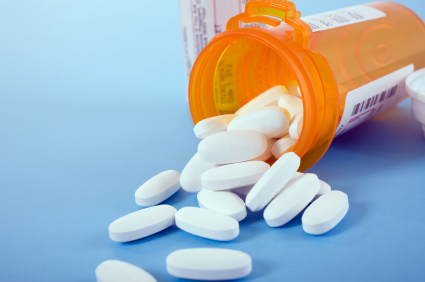It's a Game, It's Junk Food, It's Advergaming!
Submitted by Judith Siers-Poisson on


Submitted by Judith Siers-Poisson on

Submitted by Bob Burton on
A survey (pdf) by the Cancer Council of New South Wales has found that 81% of all food being advertised on television in Australia was for junk food. The study, which has been published in Health Promotion International journal, recorded 645 hours of television between 7am and 9pm on both weekdays and weekends in four different locations. It found that 31% of all ads were for food, with fast food and takeaway foods being the most common.
Submitted by Bob Burton on
 Australian drug companies have been directed to disclose details of their funding of 'educational' events for doctors.
Australian drug companies have been directed to disclose details of their funding of 'educational' events for doctors.
Submitted by Bob Burton on
In March this year Dr. Peter Gleason, a Maryland psychiatrist, was arrested by the FBI at a Long Island train station and later charged for promoting off-label use of Xyrem, a prescription drug manufactured by Jazz Pharmaceuticals. The New York Times reports that federal prosecutors allege that "at hundreds of speeches and seminars where he was rewarded with generous fees, Dr.
Submitted by Bob Burton on
Iowa Republican Senator Charles Grassley has written to the inspector general at the Department of Health and Human Services seeking an investigation into whether the Food and Drug Administration and Merck collaborated to try and dis
Submitted by Bob Burton on
For the third time in two months, Catherine DeAngelis, the editor-in-chief of the Journal of the American Medical Association (JAMA), has been embarrassed by revelations that articles published in the journal have not included full disclosure by authors of their drug industry funding. The latest edition of JAMA includes a study which links severe migraines to heart attacks in women.
Breast cancer. Genital abnormalities. Distortion and damage of genetic material.
Common ingredients in cosmetic products have been linked to these hazards. As further research is conducted into the long-term and cumulative effects on cosmetics users, their children and the water supply that products are washed off into, more questions arise. Not that you'd know it by listening to the cosmetics industry.
 An important underlying issue is that the industry is largely self-regulated. While interstate trade in "adulterated or misbranded cosmetics" is prohibited, the U.S. Food and Drug Administration (FDA) does not review new cosmetics before they are marketed and cannot order recalls of hazardous cosmetics. "Cosmetic firms are responsible for substantiating the safety of their products and ingredients," reads the FDA's own explanation.
An important underlying issue is that the industry is largely self-regulated. While interstate trade in "adulterated or misbranded cosmetics" is prohibited, the U.S. Food and Drug Administration (FDA) does not review new cosmetics before they are marketed and cannot order recalls of hazardous cosmetics. "Cosmetic firms are responsible for substantiating the safety of their products and ingredients," reads the FDA's own explanation.
The industry's trade group, the Cosmetic, Toiletry, and Fragrance Association (CTFA), likes this hands-off approach. CTFA has 600 member companies, including Aveda, Clairol, L'Oréal and Unilever, and standing committees on government relations, public affairs and international issues. Its website says CTFA promotes "industry self-regulation and reasonable governmental requirements." But reasonable to who?
Submitted by Bob Burton on
The world's third largest drug company, Sanofi-Aventis, sponsored a tour to Budapest and Paris for a "parliamentary and stakeholder working group" including representatives from British patient groups. The tour included "optional attendance" at lectures at the European Association of Cancer Research conference in Budapest and a presentation in Paris on cancer drugs used in France but not yet approved in Britain.
Submitted by Bob Burton on
British American Tobacco (BAT) reached an out of court settlement in a case that threatened to explore the company's "document retention policy," under which sensitive documents were shredded.
Submitted by Bob Burton on
The CEO of Pfizer, Hank McKinnell, says that a priority for the drug industry is regaining public trust. "We’ve done considerable research on this.
Center for Media and Democracy (CMD)
520 University Ave, Ste 305 • Madison, WI 53703 • (608) 260-9713
CMD is a 501(c)(3) tax-exempt non-profit.
© 1993-2025